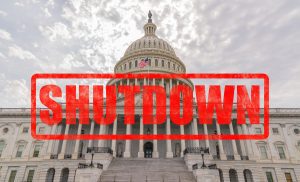LSL Webinar ‘Back to Basics | Lighten Your Year-End Load: Tackle Accounts Payable, Accrued Liabilities, and Long-Term Debt Reconciliations with Ease’ presented by LSL Manager Jayme Lambert, CPA, and Supervisor Monica Fernandez outlined how local government finance departments can start the new fiscal year with ease by staying ahead of the game by addressing challenges proactively.
In case you missed it – here are the best practices and key workpapers needed regarding Long-term Debt, Accounts Payable (AP), and Accrued Liabilities. Utilize the checklists below to prepare for audits with confidence.
No matter if you’re new to this or simply need a quick reminder, you’re welcome to bookmark this post, save the link, or print out the checklists for convenient reference in the future.
Long-Term Debt
Best Practices:
- Regularly update debt Rollforwards and amortization schedules.
- Maintain clear and organized documentation of all debt-related transactions.
- Ensure compliance with debt covenants by keeping thorough records of all necessary compliance Workpapers.
Key Workpapers:
- Debt Rollforward
- Evidence of compliance with debt covenants
- Documentation of any debt added during the fiscal year
- Amortization schedules for any new debt
- Including premiums, discounts, deferred charges on refunding
- Calculations prepared and entries recorded for new debt
- Initial debt proceeds entry
- Any calculations related to deferred charges on refunding
Accounts Payable, Payroll Liabilities, and Other Liabilities
Best Practices:
- Maintain detailed schedules for accounts payable, including vendor information and cash disbursements.
- Ensure payroll registers and AP payments for payroll-related liabilities are up to date and accurate.
- Prepare schedules for amounts due to other governments, deposits payable, and retentions payable.
Key Workpapers for Accounts Payable:
- Schedules or reconciliations as of fiscal year end for accounts payable with Vendor information
- Cash disbursements from fiscal year end date through audit fieldwork
- Includes all forms of payment (check, wires, ACH/direct transfer payments)
- Open encumbrance/PO rollover report as of fiscal year end
Key Workpapers for Payroll Liabilities:
- Payroll registers for pay periods in the fiscal year under audit, but with pay disbursements after the year under audit
- Ex: Pay period ended on June 28 but was not paid out until July 5
- Ex: Pay period ended on July 12 but June 29 & 30 were included
- AP payments made for other payroll-related liabilities
- Ex: vendor payments for retirement, insurance plans, OPEB, taxes, etc
Key Workpapers for Other Liabilities:
- Schedule of amounts due to other governments
- Provide Grant agreements, legal statutes, contracts, etc
- Schedule of deposits payable
- Include the purpose of the deposits
- Schedule of retentions payable
- Provide relevant invoices that agree to the retention amount recorded
Accrued Liabilities
Best Practices:
- Regularly update Rollforwards and listings of compensated absences.
- Verify that accrued amounts do not exceed caps and trace used amounts to leave requests.
- Keep records of all policies and labor agreements that impact compensated absences.
Key Workpapers for Compensated Absences:
- Compensated Absences Rollforward
- For FY 2024, should include increases and decreases to balances
- Upon implementation of GASB 101, only net change will be required
- Listing of compensated absences by employee
- Compensated Absences Policies
- Any new labor agreements that would affect compensated absences
Conclusion
Preparing for an audit requires thorough documentation and regular reviews to ensure all necessary information is accurate and readily available. By following these best practices and maintaining organized records, governmental agencies can streamline the audit process, address discrepancies efficiently, and uphold financial integrity and transparency.
For more comprehensive guidance on Long-Term Debt, Accounts Payable, and Accrued Liabilities go to our blog ‘Tackling Long-Term Debt, Accounts Payable, and Accrued Liabilities in Governmental Agencies: Understand the What, How, & Why’.




